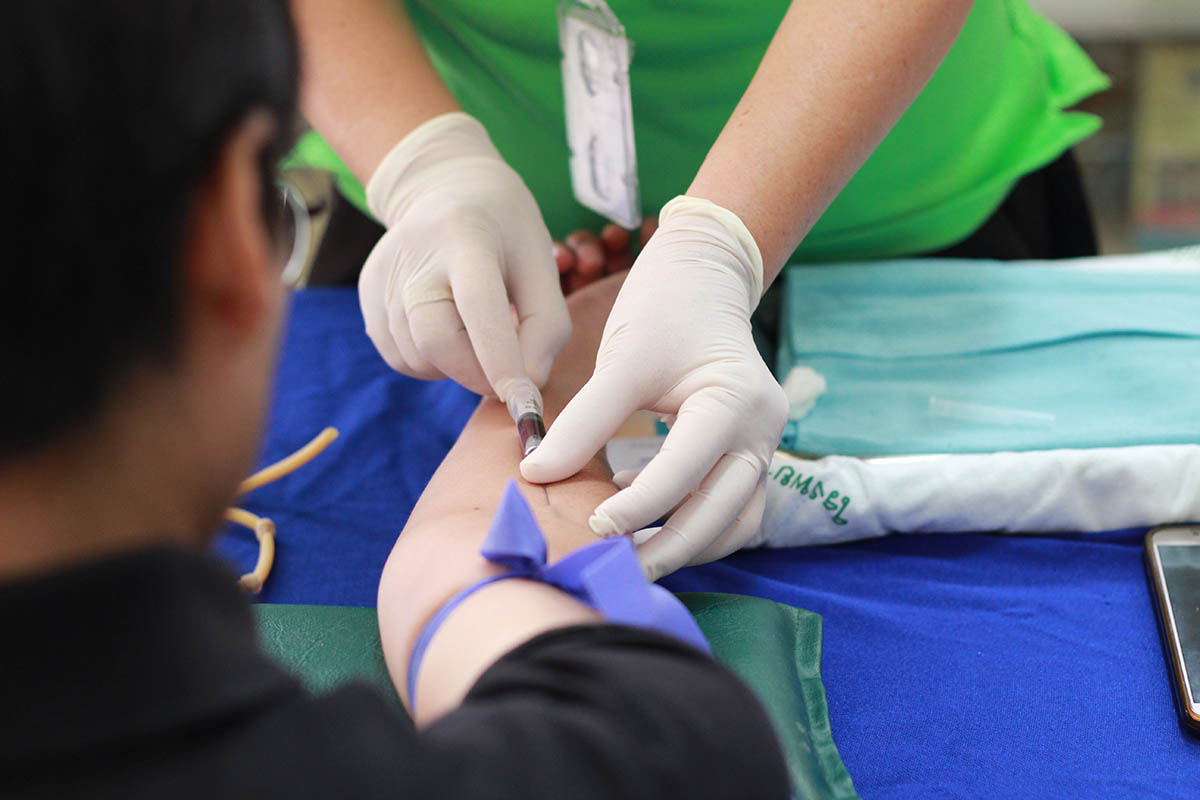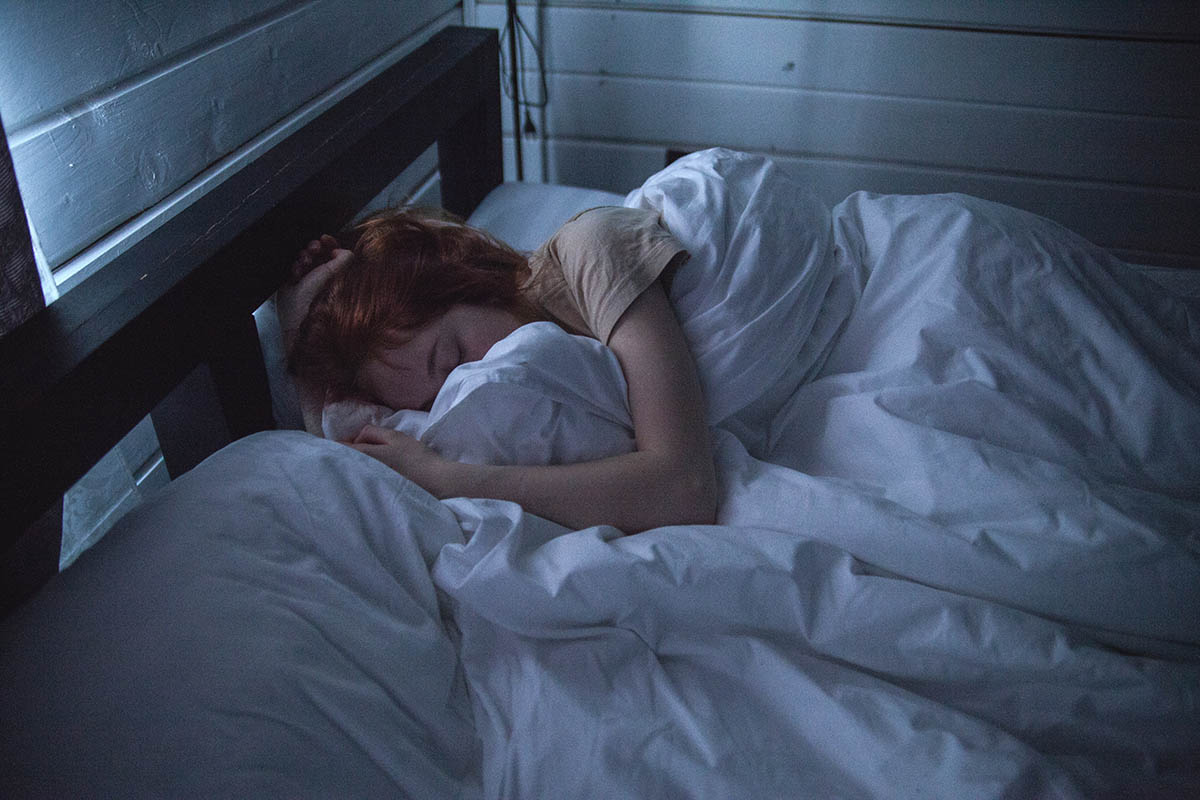Constantly Tired? Here’s Where You May Be Going Wrong
Do you constantly feel tired? Or get to 4 pm and feel as though you are ready for bed? Then you’re not alone. Approximately 1 in 5 people report feeling tired all the time, with 1 in 10 of them visiting their GP and citing fatigue as their primary symptom.
So what factors are causing so many of us to feel fatigued all the time, and what can we do about it? Here is a list of some of the most common and most surprising things that could be at the root of your problems and what can make you sleep better.
You actually have a medical condition 
Although the vast majority of fatigue-related cases are related to lifestyle factors, it’s important to recognize that a medical condition could be the root cause in some cases.
Rather than hide the medical reasons away at the end of this post, we wanted to address them first, as it is always best to visit your GP early, even if it turns out that your fatigue is related to lifestyle factors. Some of the most common medical reasons for feeling tired include:
-
Anemia
Anemia is an iron deficiency and is perhaps the single most common medical reason why people feel fatigued. People with anemia tend to feel constantly run down, get ill more easily, and feel their muscles are too weak to pick up or do anything. Anemia can be easily diagnosed with a blood test and can be treated by taking iron supplements or eating more iron-dense foods.
-
Coeliac disease
Coeliac disease is a lifelong autoimmune disease that occurs in response to gluten. More common than many people think, it is estimated that 1 in every 100 people may have coeliac disease, causing them to feel tired, lose weight, be bloated, and suffer from stomach issues.
Coeliac disease can also be diagnosed with simple testing. It can be managed by avoiding all gluten-containing products, restoring a person’s energy levels, and allowing their digestion to get back to normal.
-
Mental health conditions
Depression and anxiety are just two mental health conditions closely linked with feelings of fatigue, but there are also many others. If your doctor believes that a mental health diagnosis could be the cause of your fatigue, then their treatment of your disorder will usually help you to regain your energy levels, and they may prescribe behavioral therapies or medication.
-
Sleep apnea
Sleep apnea is most common in middle-aged, overweight men but can be experienced by anyone. The throat of a person with sleep apnea may narrow or close completely during sleep, repeatedly interrupting their breathing and causing them to start awake, meaning that they don’t get a proper night’s sleep. These are just a few of the most common medical reasons for fatigue. Regardless of whether any sound familiar, it is always best to visit your GP for guidance.
Lifestyle factors that can make you feel tired
Generally, only around half of the people who go to the doctors because they feel tired are diagnosed with a medical condition. This means that the other 50% are feeling fatigued due to other lifestyle factors.
Here’s where they could be going wrong.
Relying on stimulants
Stimulants like caffeine or Kratom, a herb that can be purchased from a Kratom wholesale, may be great in the short term, helping you get up for work or push through a long shift, but when relied on upon too heavily, they can cause an adrenal response.
During this adrenal response, the stress hormones adrenaline and cortisol are released into the body, which, initially, may cause a person to feel energized. Still, when triggered constantly, they can actually cause people to feel more tired.
To feel your best when drinking caffeine or taking other herbal stimulants such as Kratom, it’s best to stick to a single dose and to allow the body to recover in between.
Kicking a caffeine addiction 
400mg is widely considered the safe limit for caffeine in healthy adults, which equates to roughly 8 cups of tea, 4 cups of coffee, or 2 energy drinks. If you find yourself regularly exceeding this amount and having heavy cravings for caffeine, you may have a caffeine addiction.
Kicking a caffeine addiction is as simple as giving up caffeine, which, at first, may make you feel terrible, but in the long run, will give you more energy and will help you to sleep better.
Going cold turkey from caffeine can be tough. Some people prefer to switch to lower caffeine alternatives. Decaffeinated tea or coffee tastes the same and still contains minimal caffeine, rather than giving up their favorite drinks altogether.
Not eating the right foods.
No one wants to hear it, but your diet can seriously impact your energy levels, and you really are better off avoiding processed carbohydrates and refined sugars. Having toast for breakfast, a baguette for lunch, pasta for dinner, and with the odd biscuit or packet of crisps in between is a blood sugar nightmare.
When you eat high GI foods such as sugary snacks or processed carbohydrates like white rice, white pasta, white bread, or white flour, they hit your bloodstream very quickly, causing a rapid spike in blood sugar levels which then drop suddenly, causing a crash.
Suppose you are eating processed carbohydrates with every meal and snacking on sugary snacks in between. This means that you could be experiencing four or five of these mini rushes and crashes every day, making you feel sleepy after your meals and overall very tired.
Adapting your diet 
If you regularly feel tired after your meals or know that you eat a lot of processed sugar and processed carbohydrates. Try swapping these out for healthier alternatives that release energy more slowly.
Oats are a great breakfast food, releasing energy throughout the day; a protein-packed lunch is the best way to stay full until dinner. If you need to snack in between, things like nuts and seeds are nutrient-dense and will see you through. If you want to eat rice, pasta, or bread, then try to eat wholemeal varieties that are less processed and release their sugars more slowly. You could also add a supplement to your diet to help with your gut and digestive health, among other things – you may wish to check out the Total Restore ingredients to see if this could be an option for you.
Not getting enough sleep
This may seem obvious, but like their diets, sleep is a lifestyle factor that most people who feel tired all the time don’t want to confront. Many people look for the source of their fatigue elsewhere in their lives without first looking at their own sleeping patterns and behavior.
Sleep is essential for our bodies, giving us time to re-energize and allowing our bodies to heal and repair. How much sleep do you get a night? Are you disturbed often? Do you have a regular sleep routine, or do you fall asleep at different times? These are some of the questions you need to ask yourself when assessing your own sleep behavior,
Sorting out your sleep
The average person needs between 8 and 9 hours of sleep a night, with teenagers and those in very active jobs often needing more. Getting less sleep than you need will slowly lead to sleep deprivation, sapping your energy levels, affecting your cognitive ability, and making you generally feel rubbish.
When fixing your sleep schedule, try to stick to a routine, which means going to bed simultaneously and getting up at the same time every day, regardless of whether you feel tired or not.
To stop blue light from affecting your ability to fall asleep, come away from technology for an hour before bed and try to do something calming and relaxing like reading a book or having a relaxing bath.
Don’t drink any tea or coffee too close to bedtime as the caffeine may affect your sleep. In your bedroom itself, be sure to make the space comfortable, keeping the temperature between 15 and 22 degrees Celsius.
Ensure that you will not be disturbed by light or noise so that you can get a restful nights sleep – If you need to, try sleeping wearing earplugs or a sleep mask. It can take a little while for your body to get used to a new sleep schedule, so stick at it; however, if you still can’t fall asleep or are struggling to stay asleep, then consider seeing your GP for some advice.
Seeing results
So there you have it, some of the most common medical reasons why you may be feeling tired all of the time, and some of the lifestyle factors that could be making you feel fatigued.
If your reliance on stimulants, diet, or sleep routine were the underlying cause of your fatigue, then you may start to feel better almost immediately by simply changing up these habits.
It’s also important to realize that many of us have spent years in a semi-fatigued state, so it’s important to give your body time to adjust to its new diet or sleep regime before deciding if it hasn’t worked for you.




















